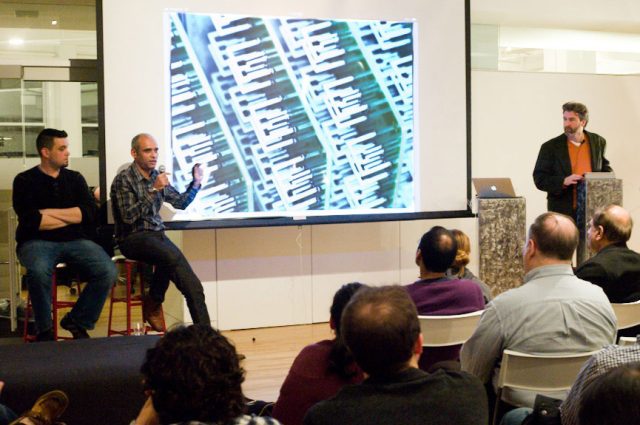
Less than a month after its Supreme Court loss, TV-over-the-Internet startup Aereo has filed a letter with a lower court, laying out its final legal strategy—one that it hopes can resurrect it from the grave.
It's going to act like a cable company.
If it walks like a duck...
Aereo customers rented up to two tiny, dime-sized antennas that are housed in facilities across the country. The antennas captured local, over-the-air broadcasts and funneled them to local customers in real time. The content was freed to stream to most any Internet-connected device. Another antenna synced with a DVR for later viewing for about $12 monthly. Broadcasters decried it as "technological gimmickry" to skirt copyright and other retransmission laws.
In a 6-3 opinion, the Supreme Court essentially said that Aereo is too similar to a cable system, which does have to pay broadcasters in order to carry their content. Three days after the ruling, Aereo suspended its operations.
Now, Aereo has—given no other choice—embraced the ruling and seeks to change its business model. In a letter (PDF) to Judge Alison Nathan, who is overseeing the litigation between TV broadcasters and Aereo, the company says that it shouldn't be forced to shut down. Rather, since the Supreme Court said it's similar to a cable company, Aereo is asking to be treated exactly like a cable company. That would mean it's allowed to pay "statutory royalties" set by the government (rather than through negotiation with broadcasters) and to retransmit content."If Aereo is a 'cable system' as that term is defined in the Copyright Act, it is eligible for a statutory license, and its transmissions may not be enjoined," writes Aereo in the letter.
The same letter includes a section from the TV broadcasters, who insist that Aereo's business should be enjoined from operating.
"[I]t is astonishing for Aereo to contend the Supreme Court's decision automatically transformed Aereo into a 'cable system' under Section 111 given its prior statements to this Court and the Supreme Court," write the plaintiffs, which include all four major TV broadcasters: ABC, NBC, CBS, and Fox. Aereo has long claimed it is not a cable company in order to avoid paying retransmission fees.
Been here before
The last-ditch strategy Aereo is now pursuing has been tried before—and failed. A Seattle-based startup called ivi TV sought to transmit live TV over the Internet in 2010 while paying the same fees as cable TV. Congress, ivi TV pointed out, had defined a cable system as a facility that “makes secondary transmissions of such signals or programs by wires, cables, microwave, or other communications channels to subscribing members of the public.”
ivi's argument failed at the district court in 2011 and lost on appeal as well. Aereo argues that the ivi TV case has now been overturned by its own Supreme Court case, however. It also notes that ivi TV sought to transmit "distant, rather than local, transmissions" to subscribers. (ivi's system grabbed signals from a few cities and sent them to anyone with an Internet connection, while Aereo only connects subscribers to the same programs they'd be able to catch with an antenna in their own city.)
But even if Aereo wins the right to call itself a cable company that can retransmit broadcast signals, that doesn't mean it may automatically do so over the Internet. Dish is currently battling Fox over that issue before a federal appeals court, where a decision is pending.
Aereo chief executive Chet Kanojia said Wednesday that the Supreme Court decision was "a massive setback to consumers." He added, "With the most recent decision and in the spirit of remaining in compliance, we chose to pause our operations last week as we consulted with the lower court to map out our next steps... This has been a challenging journey for our team, but your support has continued to lift and propel us forward."
Listing image by Aereo
reader comments
138